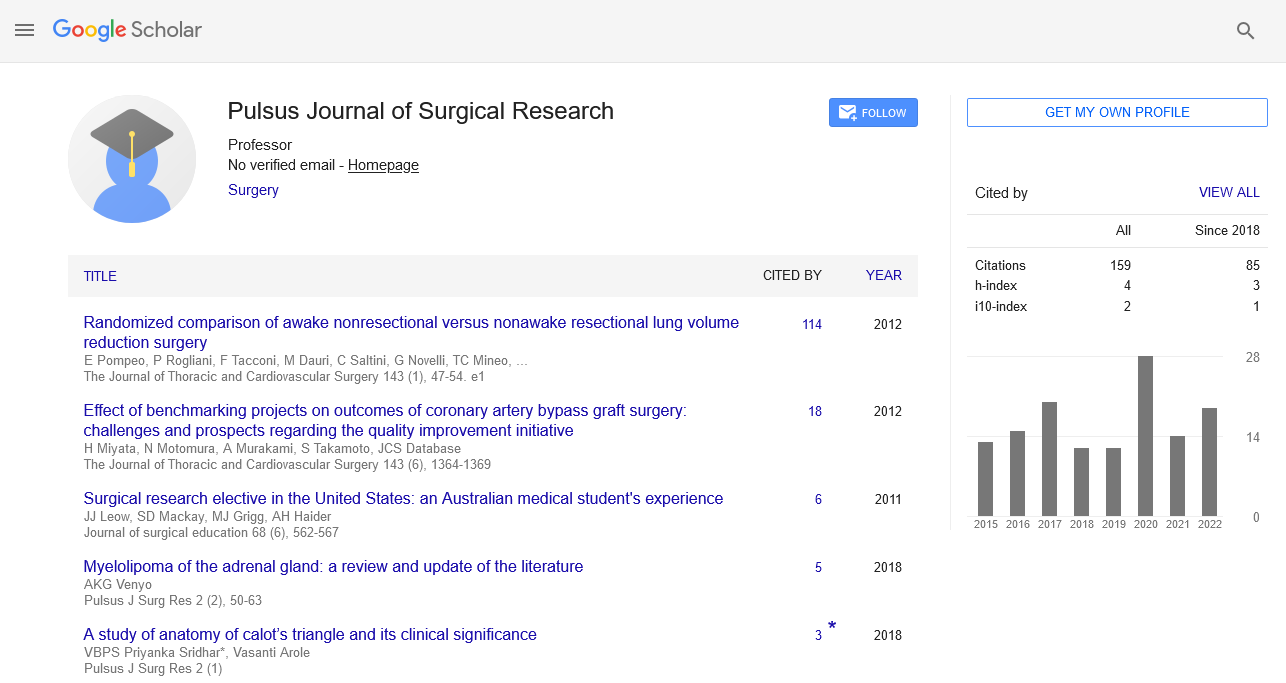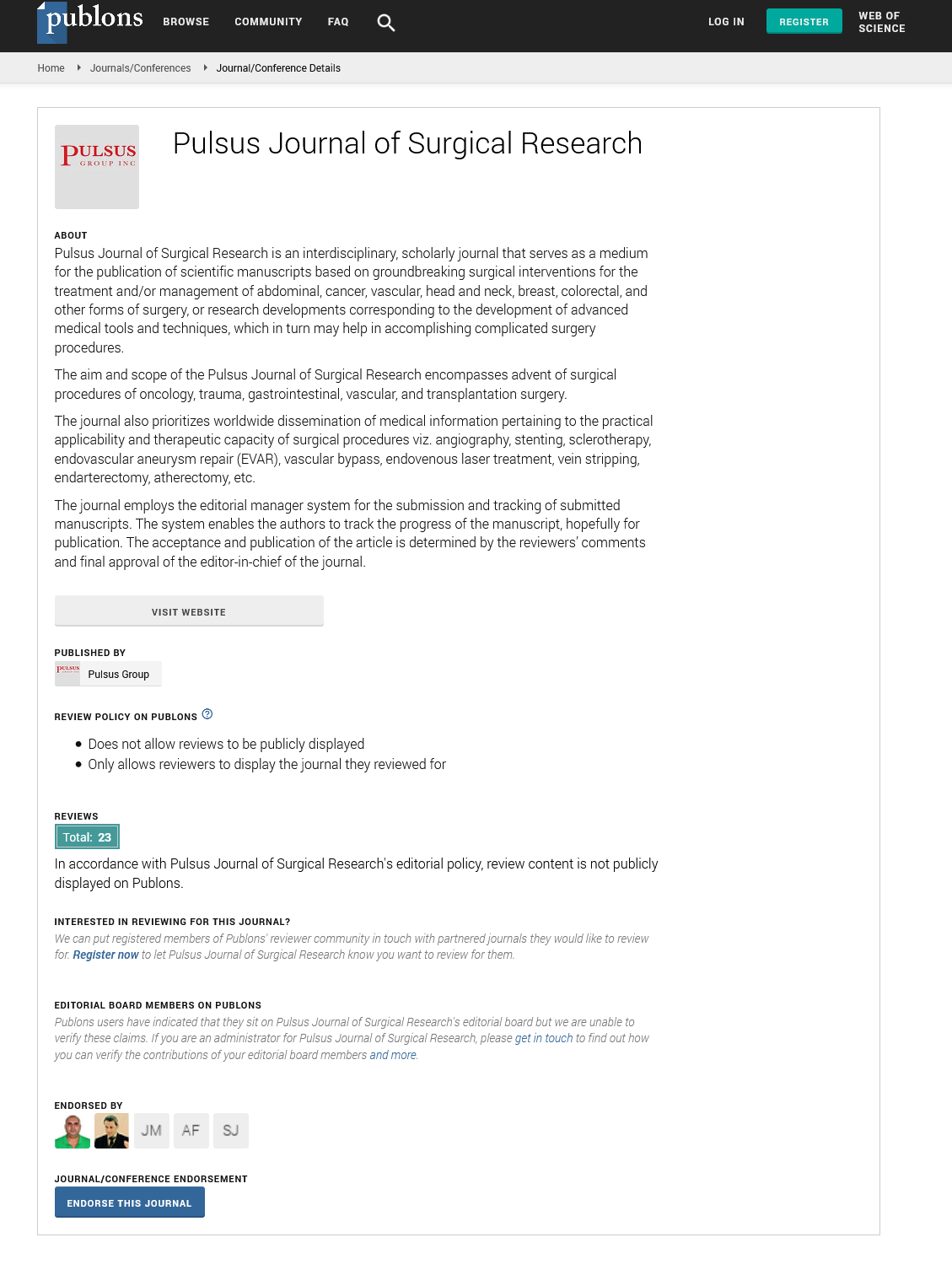
Sign up for email alert when new content gets added: Sign up
Anosmia as a screening tool for COVID-19 infection: A prospective cohort study
4th International Conference on Medicine and Surgery
October 04, 2021 | Webinar
Esra Alhamadani
Rashid Hospital and Trauma Centre, United Arab Emirates
Posters & Accepted Abstracts: Pulsus J Surg Res
Abstract :
Objectives: Several studies promoted anosmia as a possible isolated symptom for coronavirus disease 2019 (COVID-19). No studies used feasible methods of smell testing that the public would use to address the accuracy of these claims. Methods: This is a single-center study conducted between April 2020 and June 2020. The sense of smell was tested in vitally stable suspected COVID-19 patients with no/mild upper respiratory tract infection symptoms prior to nasopharyngeal swabbing for reverse-transcriptase polymerase chain reaction. Patients were instructed to close their eyes. Each nostril was tested separately while the other was blocked with the patient’s index finger. Patients inhaled from 2 concealed vials (coffee and strawberry essence) consecutively, kept within 30 cm of the nostril for 60 s. Patients who could not identify both odors with both nostrils were recorded as “anosmia.” Results: Out of 346 eligible subjects, 43 had anosmia of which 26 (60%) tested COVID-19 positive. χ2 test showed a p value <0.001. The test showed a sensitivity of 30% (95% confidence interval [CI] 21%, 41%) and specificity 94% (95% CI 90%, 96%). Logistic regression revealed an odds ratio of 5.9 (95% CI 3.0, 12) p value <0.001. Conclusion: Given the low sensitivity (30%) of this method in detecting COVID-19 infection, we conclude that this method is not a useful screening tool for COVID-19 infection. The moderate negative predictive value (80%) is nongeneralizable.
Biography :
Esra Alhamadani currently works as an emergency resident-physician at Rashid hospital, Dubai health authority since 2018. She served as a front-liner during the Covid-19 pandemic. In 2019, Dr. Esra completed her clinical research training with Harvard Medical School. During her 6 months training, she was exposed to research methodology and biostatistics. Esra holds an MB BCh BAO from the Royal College of Surgeons Ireland.





